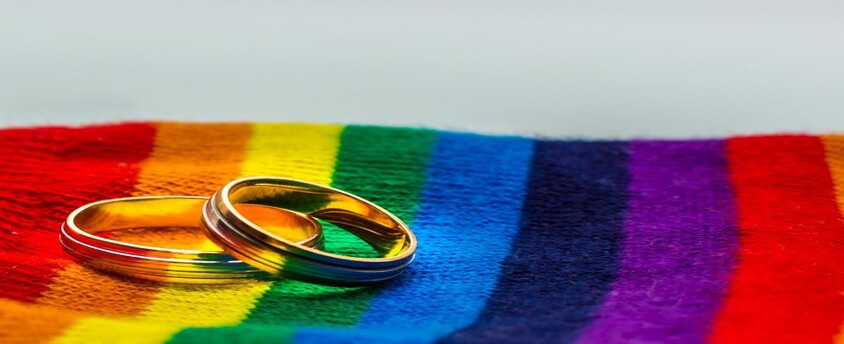The petitions around same sex marriage
19, Apr 2023

Prelims level : Governance
Mains level : GS-II Polity - Mechanisms, laws, institutions and Bodies constituted for the protection and betterment of vulnerable sections
Why in News?
- A five-judge Bench of the Supreme Court, headed by the Chief Justice of India will be hearing a series of petitions seeking recognition of same-sex marriage in India on the 18th of April 2023.
Various petitions:
- The key argument of the petitioners is that the non-recognition of same-sex marriage amounts to discrimination that has affected the dignity and self-fulfilment of LGBTQIA+ couples.
- As per the petitions filed, LGBTQ+ citizens form about 7% to 8% of the total population in India and various existing legal protections guaranteeing the rights of wages, gratuity, adoption, surrogacy, etc, were not available to LGBTQIA+ citizens.
- Further, the Delhi Commission for Protection of Child Rights (DCPCR) has stated that same-sex couples would make equally good parents as heterosexual parents.
- Petitions citing this statement say that by depriving legal status to homosexual marriages, the government is denying the legal security of dual parenthood and guardianship to the child.
- Ever since 2000, when the Netherlands legalised same-sex marriages more than 34 countries have legalised same-sex marriages.
- Currently, over 50 countries allow same-sex couples to legally adopt children.
- According to a study conducted by the American Sociological Review, academic results of children raised by same-sex parents from birth was seen to be better than those children with heterosexual parents.
Government’s Stand:
- According to the Union government the idea of same-sex marriage is merely an “urban elitist view” and the judicial creation of a “new social institution” like same-sex marriage cannot be claimed as a matter of right.
- The government has held that same-sex marriages threaten the “holy union” of marriage between a biological man and woman in India and has said that it is Parliament and not the courts that have the powers to decide on same-sex marriages.
- Furthermore, the National Commission for Protection of Child Rights (NCPCR), has argued that same-sex marriage violates the provisions of the Juvenile Justice Act, 2015.
- The Juvenile Justice Act of 2015 prohibits a single man from adopting a girl child.
- The NCPCR also cited a study conducted by the Catholic University of America. According to this, children raised by same-sex couples experienced emotional problems two times more than children raised by heterogenous parents.
The stand of various religious bodies and NGOs:
- As per Shri Sanatam Dharm Pratinidhi Sabha, legaslisation of same-sex marriages would be “catastrophic” and have an adverse effect on Indian culture and society.
- The Jamiat-Ulama-i-Hind also has raised concerns over the legalisation of same-sex marriage and says that marriage between opposite sexes is a “basic feature” of marriage.
- According to the Telangana Markazi Shia Ulema Council, children or individuals raised by same-sex couples would most likely suffer from depression, low academic achievement, unemployment, etc.
- The Kanchan Foundation has said that deep-rooted stereotypes and mental and social barriers cannot be dismantled by a judicial ruling and opined that Indian society requires time to accept same-sex marriages.
- As per the Call for Justice NGO, “marriage flows from natural law” and any changes to the centuries-old institution of marriage between opposite sexes must come from a popular will through the legislature only.






